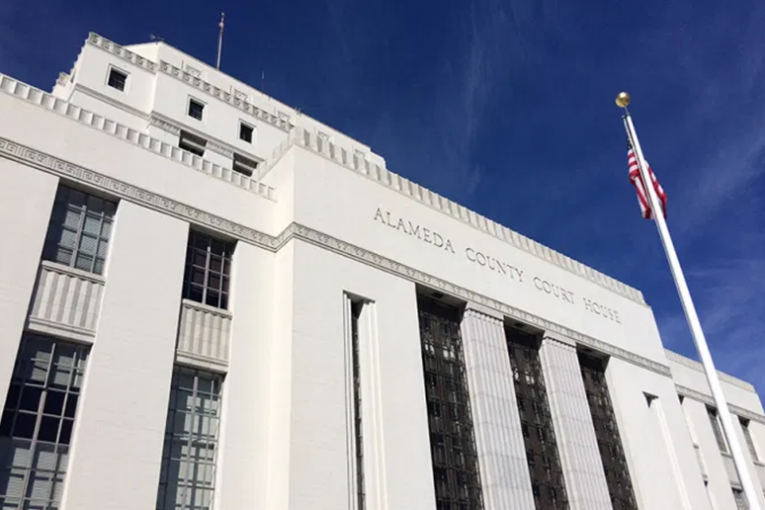

By Sydney Kaplan
OAKLAND, CA – The victim of an armed robbery grew frustrated and emotional during an unusual “Blackboard Motion” requested by Associate Deputy Public Defender Anisha Gandhi in an Alameda County Superior Court preliminary hearing this week.
The defendant’s name was never referenced during the Blackboard Motion, where the victim was only able to view the judge during her testimony and had to identify the defendant through a series of specific verbal questions.
This motion was requested by PD Gandhi after a questionable identification of the defendant had taken place.
Allegedly, the armed robbery occurred April 3, 2019, while the victim was with her boyfriend and her friend.
Several days later, April 9, 2019, the victim was with her friend and boyfriend again when they spotted a car associated with their armed robbery.
They allegedly followed the car for a brief period of time before identifying the driver as one of the robbers and calling the police.
One of the police officers that showed up to the scene was coincidentally one of the police officers that had arrived after the armed robbery had taken place.
There was no lineup created, apparently, and the victim’s eyewitness account was the only official tie between the defendant and armed robbery that occurred a week prior.
“We have a situation in which the circumstances [of the incident] are creating an affirmative bias for the witness,” Gandhi argued during the request for the Blackboard Motion.
The victim was on the witness stand for nearly an hour and a half.
While District Attorney Maryam Ahmad’s questioning focused around the incident, the majority of the witness’s time on the stand was occupied by PD Gandhi.
Gandhi’s questions consisted primarily of quizzing the victim on the defendant’s outward appearance. These questions included everything from questioning the defendant’s build and clothing to the exact shape of the defendant’s nose and mouth.
The victim was unsure of many of these answers.
“I don’t remember what his lips looked like. I was scared for my life, I want you to understand that. I was scared for my life because there was another man pointing a gun at me,” the victim cried after being pushed to tears.
As this questioning continued, the victim continued to confess to not remembering specific facial features.
“This is ridiculous. Does he remember my face? Does he remember how much he owes me or how much he traumatized me?” she asked.
The victim was offered many breaks but declined.
Despite the victim’s growing frustration over not being able to remember chin shapes and hairlines, both the defense and the judge saw the questioning as important.
“I feel like you guys aren’t helping me,” she cried to the courtroom.
Eventually, the victim was asked to identify the defendant. She did so, but the defense pointed out that the victim’s wording during identification was relatively unsure.
This suspect phrasing consisted of “I believe…” and “Appears to be…” instead of confident phrases.
After the identification of the defendant, the victim was excused.
A trial was referenced, but no date—or name of the defendant—was announced.

